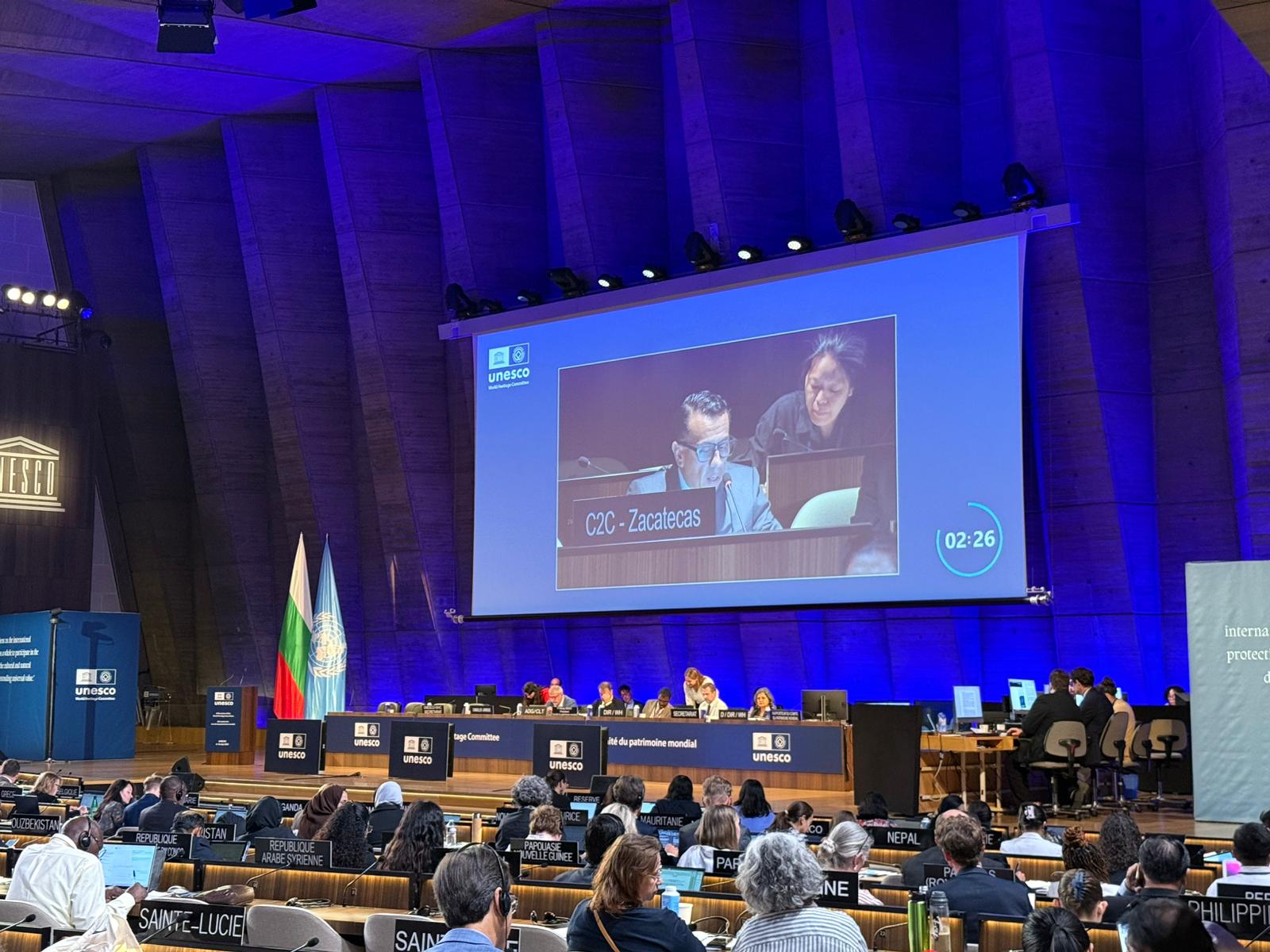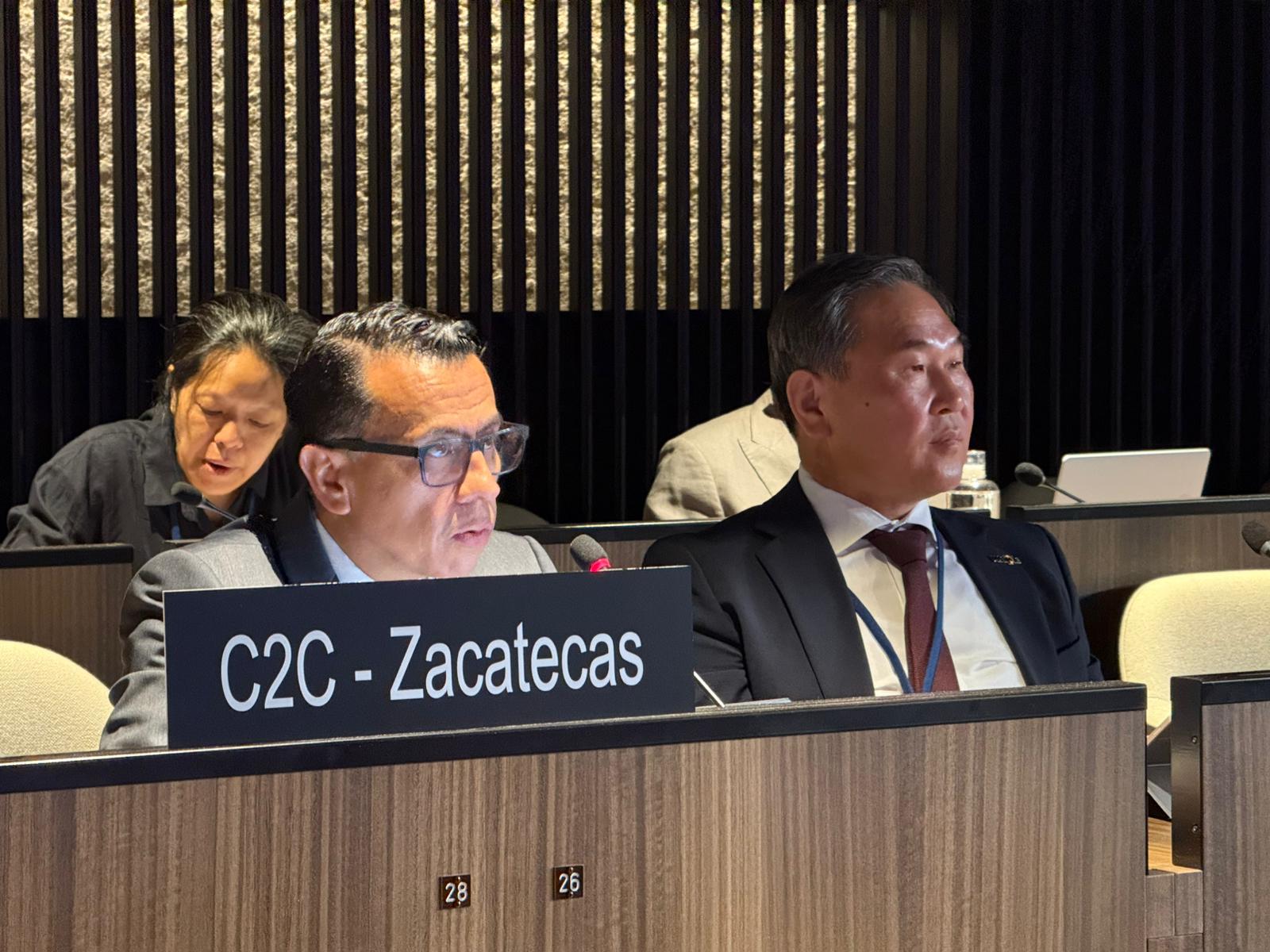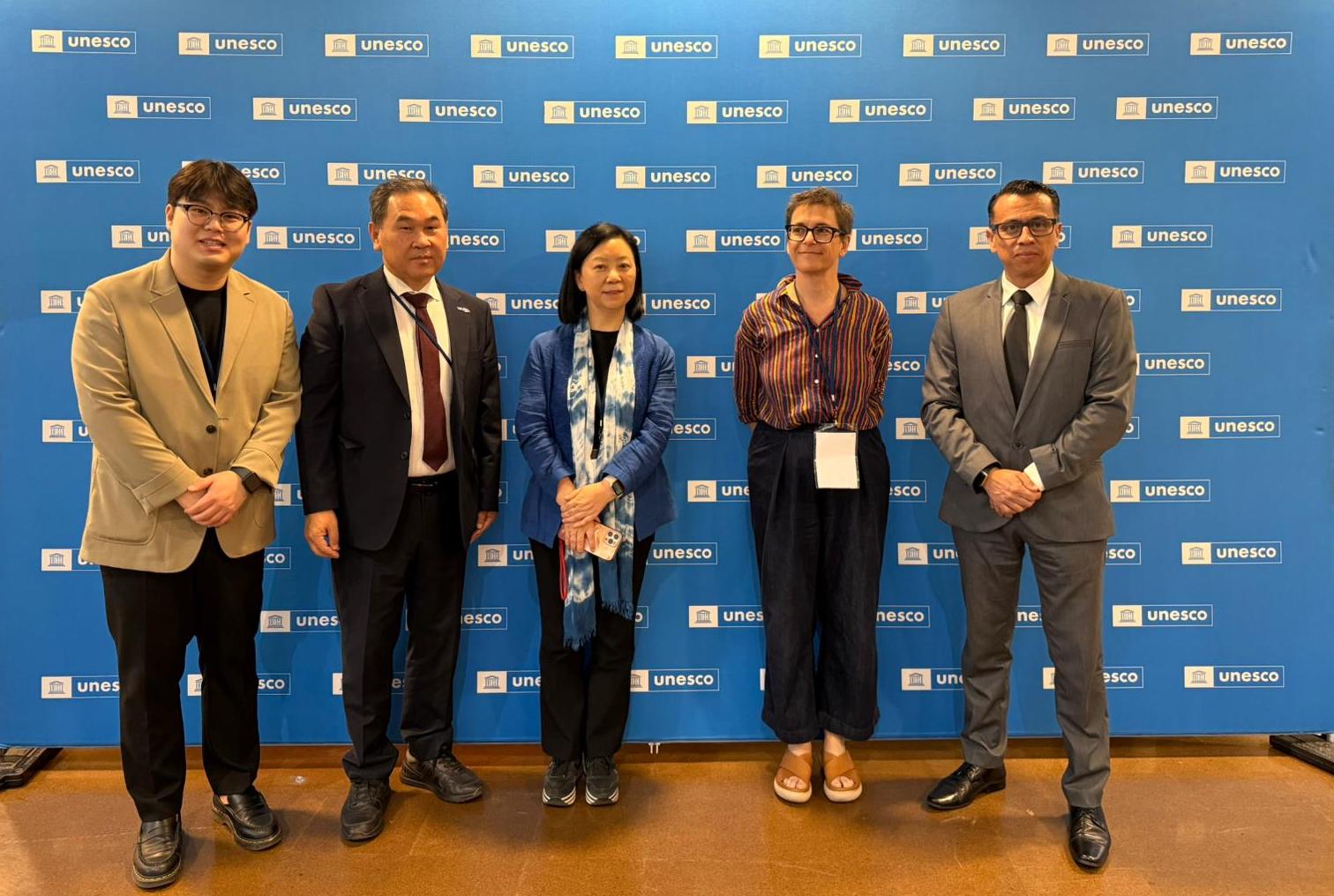The RWHIZ presents its Annual Report to the World Heritage Committee at UNESCO Headquarters

During the 47th Session of the UNESCO World Heritage Committee, held at UNESCO Headquarters in Paris, France, from July 6 to 16, 2025, the Regional World Heritage Institute in Zacatecas (RWHIZ), a Category 2 Centre under the auspices of UNESCO, presented its 2024-2025 activity report.
In this exercise, included in point 6B of the Agenda that was developed on July 15, Carlos Augusto Torres Pérez, Director General of the RWHIZ, noted that, guided by the Action Plan for Latin America and the Caribbean (2023-2029), various initiatives were implemented this year to strengthen the conservation, management, and promotion of World Heritage in Mexico, Central America, and the Caribbean, reaffirming, through these activities, the Institute's commitment to capacity building.
During this period, and in coordination with ICCROM, the Manual and Toolbox for Impact Assessments was promoted at the regional level, supporting its translation and promoting its application through the delivery of the first three courses in Spanish, benefiting nearly 100 professionals from 16 countries. The use of innovative technologies applied to conservation was fostered, training more than 60 experts in Digital Photogrammetry applied to World Heritage in countries such as Cuba, Costa Rica, Guatemala, Nicaragua, Panama, the Dominican Republic, and Mexico.

It was reported that in May 2025, the Institute organized the 9th Coordination Meeting of Category 2 Centres related to World Heritage, held in Zacatecas, Mexico, with the valuable participation of representatives from Brazil, South Africa, Spain, India, and the Republic of Korea, as well as from the World Heritage Centre and ICCROM.
The meeting's theme was "Capacity Building: The Key to Better Implementation of the 1972 Convention," and the outcome was the adoption of the Zacatecas Declaration, which established concrete commitments to promote cooperation, technical training, heritage interpretation, and strengthening sustainability.
Within this framework, a Memorandum of Understanding was formalized with the WHIPIC of Korea and a Regional Forum on World Heritage Interpretation and Presentation was held, as well as an Ibero-American Symposium on Rock Art, in collaboration with the ICRART of Spain.
 The successful meeting reaffirmed the strategic role of Category 2 Centers as key actors in the decentralized and effective implementation of the Convention and consolidated this network as an active and committed community.
Torres Pérez also noted that the positive results were possible thanks to the support of the RWHIZ Board of Directors, the Government of Mexico, and the Government of the State of Zacatecas, as well as the backing of the UNESCO World Heritage Center through its Latin America and the Caribbean Unit, and key partners such as the National Institute of Anthropology and History of Mexico and the International Centre for the Study of the Preservation and Restoration of Cultural Property (ICCROM).
The successful meeting reaffirmed the strategic role of Category 2 Centers as key actors in the decentralized and effective implementation of the Convention and consolidated this network as an active and committed community.
Torres Pérez also noted that the positive results were possible thanks to the support of the RWHIZ Board of Directors, the Government of Mexico, and the Government of the State of Zacatecas, as well as the backing of the UNESCO World Heritage Center through its Latin America and the Caribbean Unit, and key partners such as the National Institute of Anthropology and History of Mexico and the International Centre for the Study of the Preservation and Restoration of Cultural Property (ICCROM).

